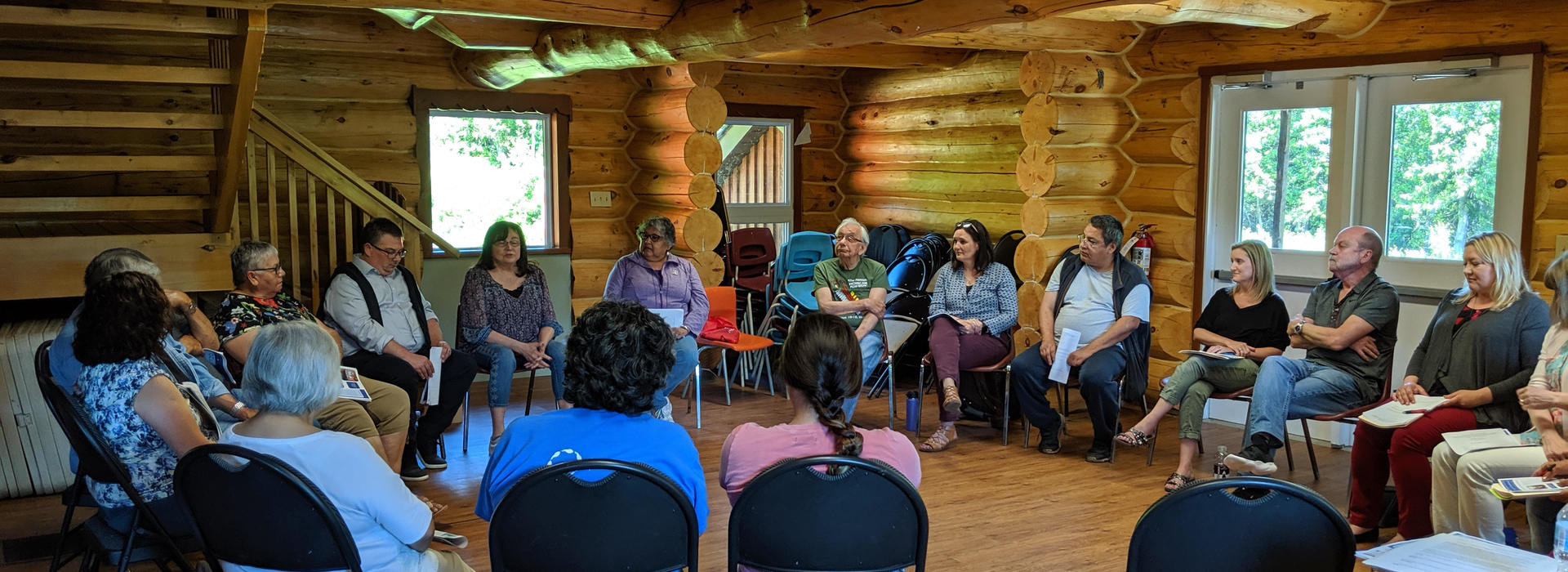
Medical Discovery Team Awarded $7.5M to Improve Knowledge of Indigenous Cultural Understandings of Dementia Care
In Indigenous culture, Traditional Knowledge Keepers, or Memory Keepers, are Tribal elders responsible for preserving the heritage, stories and sacred songs passed down from previous generations. But, recent research has shown that rural and Indigenous populations are some of the populations most plagued by Alzheimer’s disease and related dementias (ADRD) – impacting their ability to preserve their important history and wisdom.
According to the Centers for Disease Control and Prevention (CDC) - Road Map for Indian Country, one of every five American Indian and Alaska Native (AI/AN) adults aged 45 and older reported experiencing a cognitive decline and increased difficulty in thinking or remembering, which can be a precursor to dementia.
To preserve brain health and healthy aging in Indigenous populations, the Memory Keepers Medical Discovery Team (MK-MDT), housed on the Medical School's Duluth campus, was awarded over $7.5 million by the National Institute on Aging (NIA) for their grant, “Indigenous Cultural Understandings of Alzheimer's Disease and Related Dementias - Research and Engagement (I-CARE).”
The project is led by Kristen Jacklin, PhD, a medical anthropologist and associate director of the MK-MDT, who was recruited from the Northern Ontario School of Medicine in 2017 and brings over two decades of knowledge in Indigenous health to the study. Joining her on the project are MK-MDT faculty investigators Wayne Warry, PhD, and Jordan Lewis, PhD, MSW, who are both professors in the Department of Family Medicine and Biobehavioral Health. This is the second National Institutes of Health grant awarded to Dr. Jacklin and the MK-MDT for the I-CARE project – a critical first step in examining all stages of the progressive disease in Tribal communities.
“This grant appears to be the first of its kind in the United States that allows us to learn from Indigenous knowledge and experiences to create culturally-safe resources and help provide the best possible care to their members,” Dr. Jacklin said. “It has been clear since we started that dementia research was absent in Indigenous communities, and they were essentially left with mainstream resources that we recognized didn’t work well for them.”
The project will continue with the team’s Tribal partners from the Red Lake Nation, Grand Portage Band of Lake Superior Chippewa, the Oneida Nation in Wisconsin and seven Anishinaabe communities on Manitoulin Island located in Ontario, Canada. The team will apply the same approaches developed during the first phase of the I-CARE project where they listen and learn from Indigenous peoples’ lived experiences with dementia as well as their caregivers through community-based participatory methods and “two-eyed seeing”– a way of understanding the integration of Indigenous and western knowledge.
The five-year study will lead to the development of an ethnographic database containing qualitative interviews with 224 AI/AN older adults – 184 of which are currently diagnosed with ADRD. The purpose of the ethnographic database is to inform future attempts to develop clinical and diagnostic tools.
“During the first phase, we began gathering perspectives about dementia from the Traditional Knowledge Keepers and those working within formal health services. Those interviews have helped us understand how each Indigenous cultural group we are working with perceives dementia and related symptoms,” Dr. Jacklin said. “Similarly, the interviews we had with healthcare professionals helped us to understand the context in which care is being delivered and the challenges that are unique in each community setting.”
With this combined knowledge, the team will start developing resources around dementia education using the ethnographic database with the eventual goal of implementing clinical care guidelines for Indigenous people with dementia down the road.
“I have worked with Indigenous communities for decades on health equity issues, and dementia care is something they identified as needing urgent attention since they are noticing more elders being diagnosed,” Dr. Jacklin said. “The topic resonated with me because of personal experiences in my own family. I agreed to go on this journey with them, and I never looked back.”